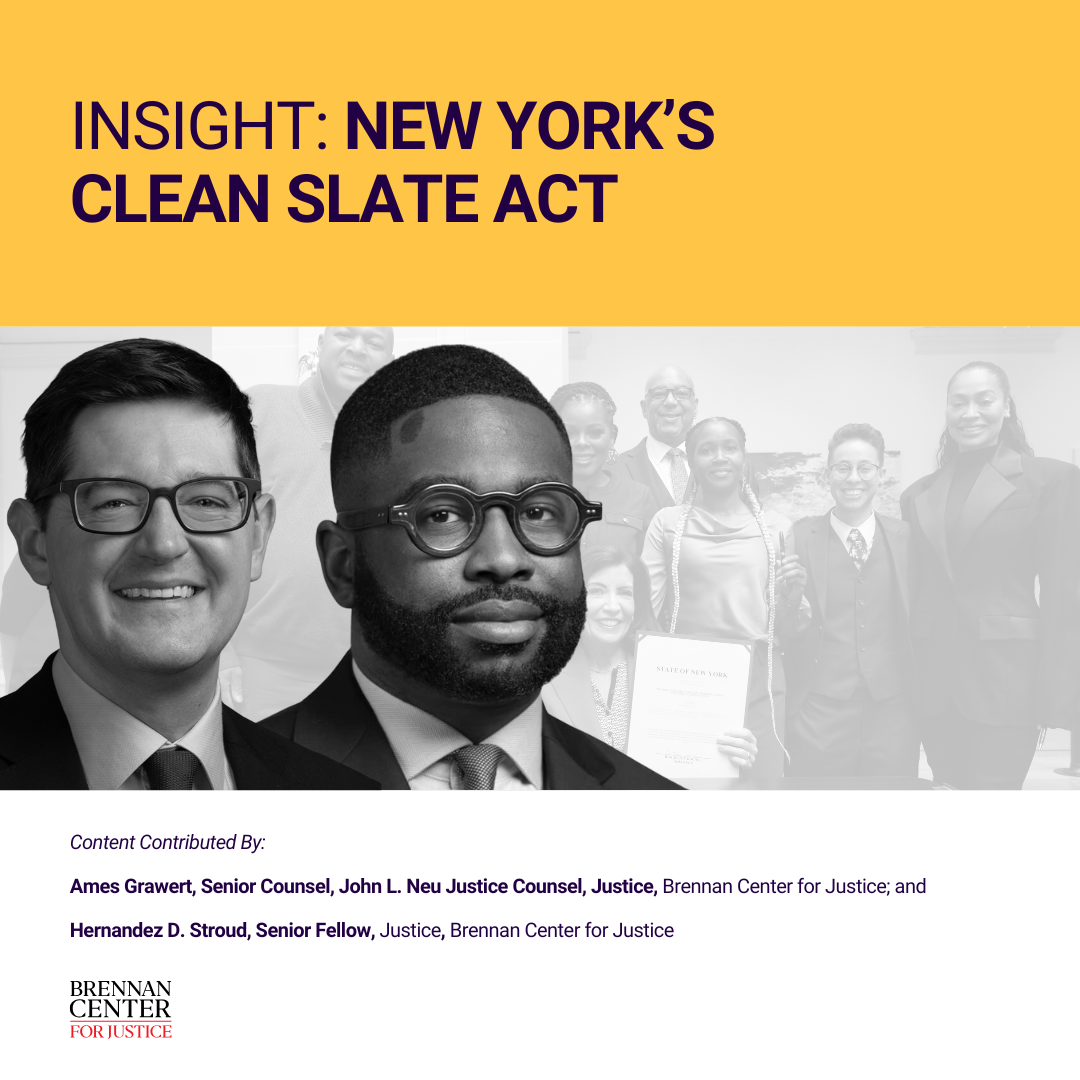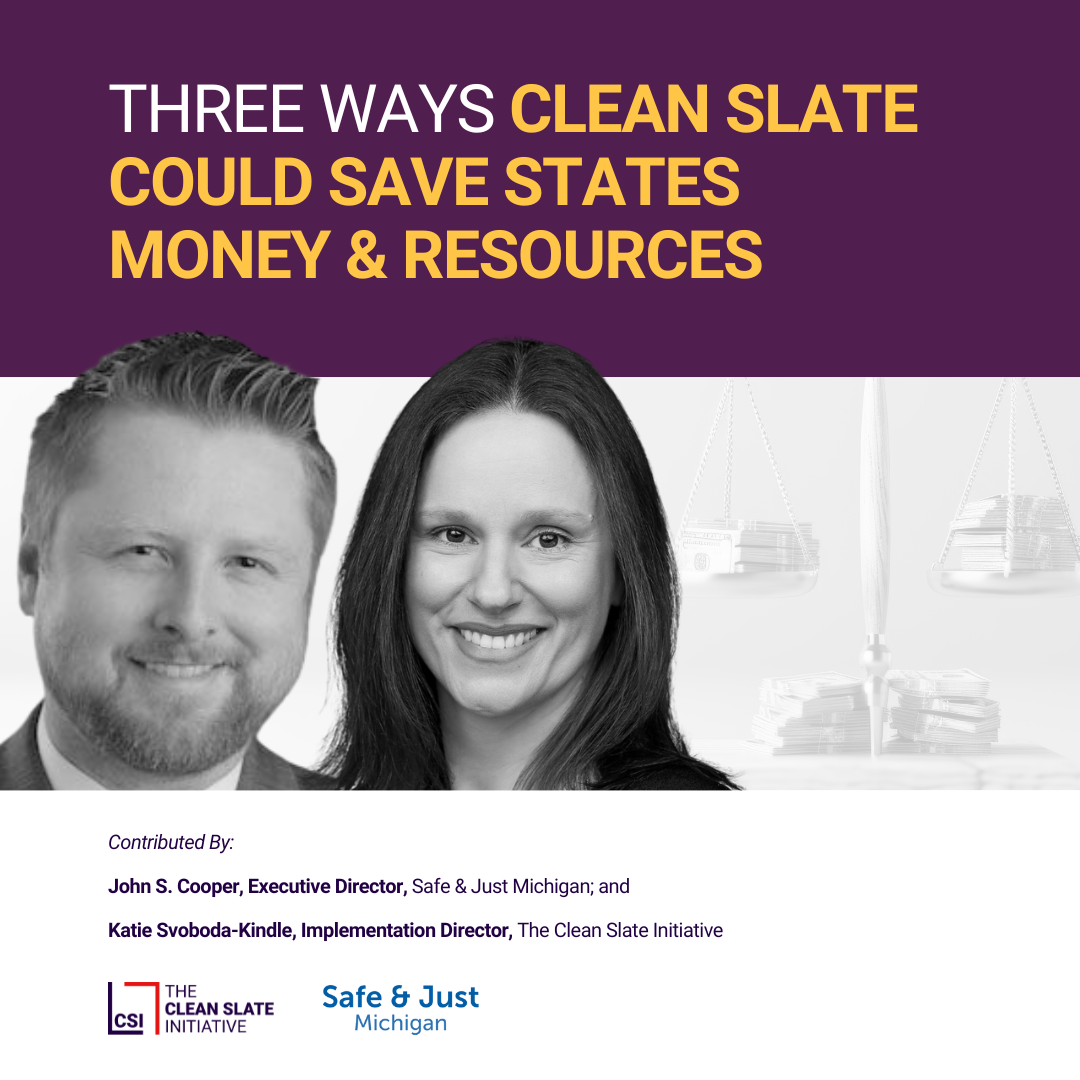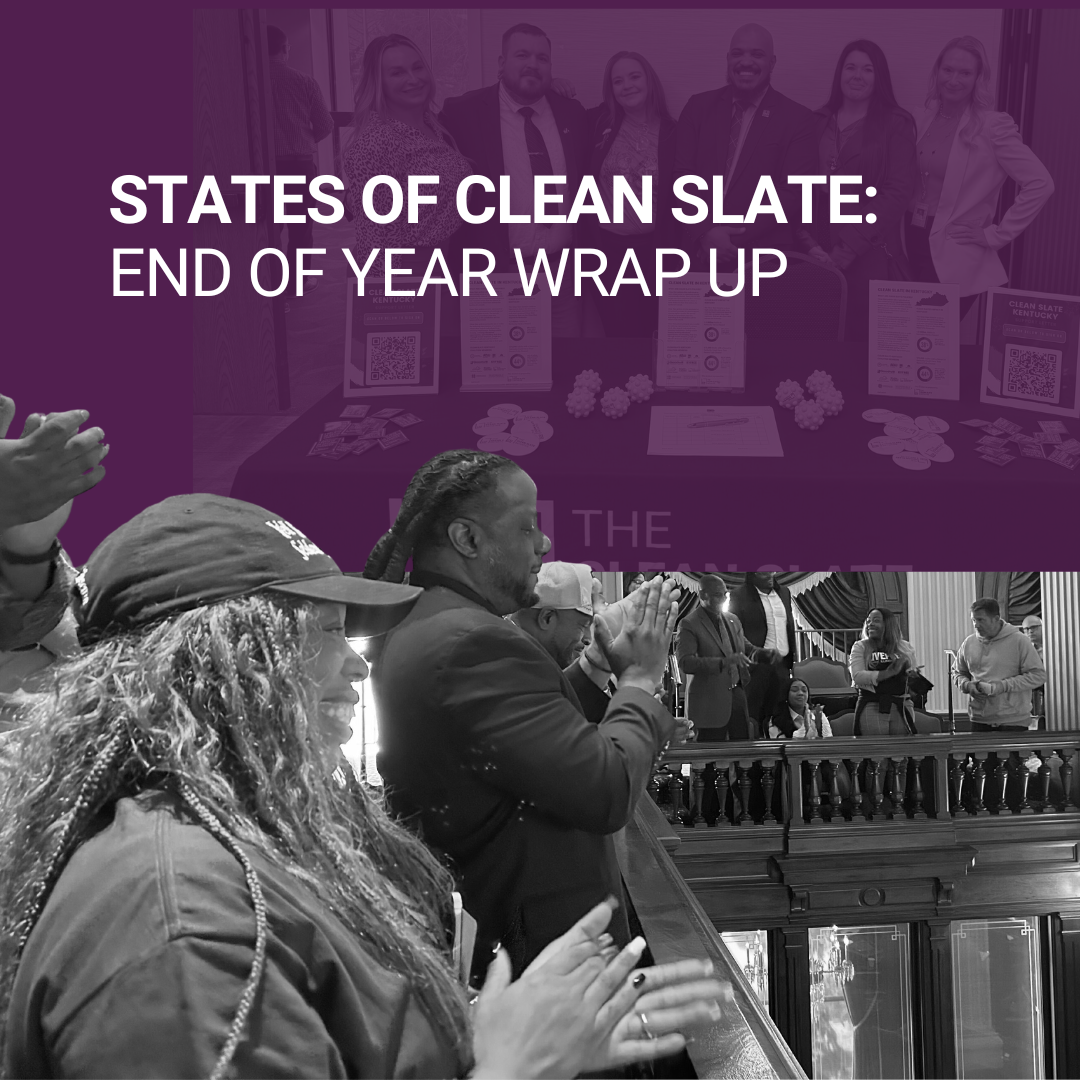Search Report Offers Policy Recommendations After Clean Slate Analysis in 11 States

In partnership with the Clean Slate Initiative, SEARCH, The National Consortium for Justice Information and Statistics, conducted an analysis of record clearance policies in 11 states, and put their findings together in a report that outlines what’s working, what needs work, and where states can go from here.
The takeaway: Clean Slate policies are essential to addressing the collateral consequences of arrest and conviction records and shifting the burden of the sealing process from people with records to states is an important step toward helping people gain access to record sealing once they become eligible. There are a number of technical, logistical, and operational challenges faced by states who attempt Clean Slate legislation — but those challenges are solvable.
David Roberts, SEARCH’s Executive Director and the study's lead author, has made the SEARCH report findings available to advocates to help address implementation challenges including jurisdictions' data quality and accessibility, definitions of eligibility requirements, and the role of fines and fees in record relief qualifications.
The primary goal of this analysis was to assess the design, scope, implementation, and costs of record sealing through Clean Slate policies. SEARCH researchers documented the legal, policy, operational, and technical challenges that states have encountered while planning and implementing Clean Slate legislation.
Researchers reviewed existing statutes and how those statutes may need to be updated to accommodate automatic record sealing through Clean Slate legislation. They found that states seeking to automate record sealing through Clean Slate policies are often encumbered by information systems that are independent and siloed across numerous agencies, including courts, corrections, prosecutors, criminal history repositories, and financial systems tracking payments of fines, fees, and restitution. Another challenge is that data quality and accessibility can be significant issues with missing or incomplete records across systems.
Recommendations for states included:
- Simplifying terminology so that people understand what happens in records relief and that Clean Slate is an automated, rather than an automatic system of records clearance. Clearing records is a complicated process that requires careful planning, innovative technical solutions, changes in business processes, and effective leadership and support.
- Leveraging centralized, agile, and unified case management systems, structured data, and the adoption and use of enterprise-wide transaction control numbers will greatly assist states in overcoming implementation barriers.
- States should leverage the experiences of other jurisdictions who have achieved broadscale records relief. This may include relaxing some of the stringent eligibility requirements, such as paying fines and fees before relief is granted; and
- Recognition that Clean Slate planning and implementation is complex. The technical environment and infrastructure may need support and upgrades, and phased implementation may work best. And it is important to manage expectations.
To read the full report by SEARCH, click the button below. For more information about SEARCH’s findings, or to discuss how these findings can be used to help pass and implement Clean Slate in your state, reach out to us via our contact form.
Click the button below to read the full report, and check out the report appendix here.
.avif)
.avif)





.png)